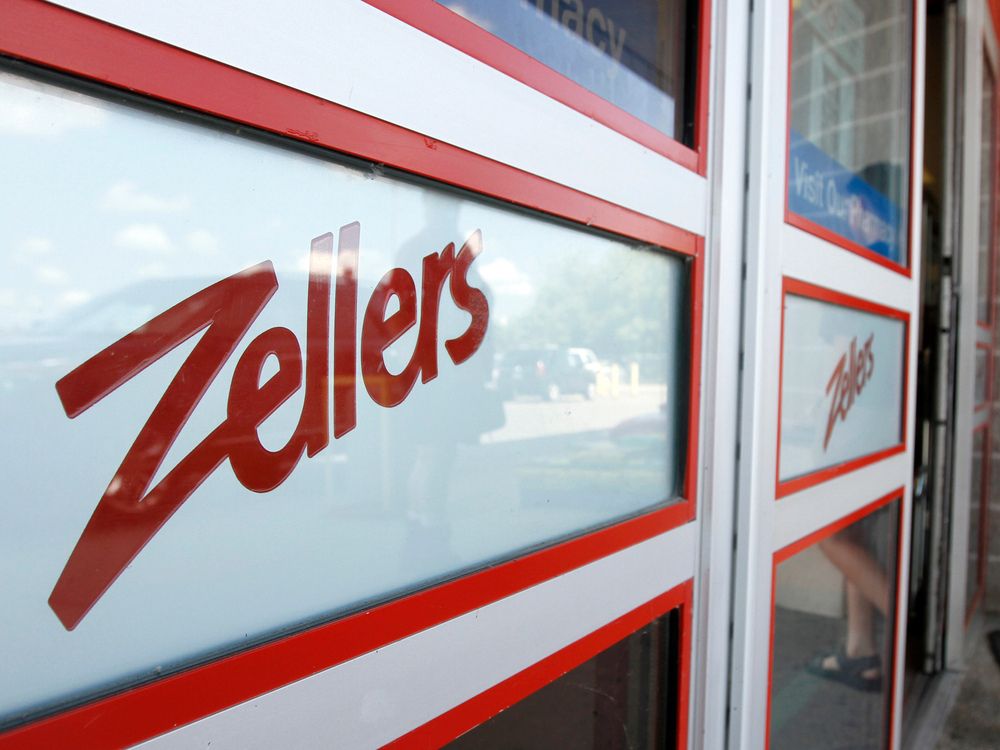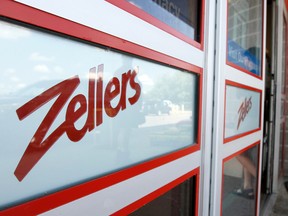‘What’s going on at HBC?’: Bringing Zellers back from the dead is going to be tricky

HBC’s strategy looks pretty murky, experts say, plus the retailer runs the risk of ruining nostalgia for the Zellers brand

Article content
Hudson Bay Co.’s (HBC) announcement last week that it is reviving value retailer Zellers generated a lot of attention, with Canadians reminiscing about the iconic in-store, 1950’s-themed diner, Zeddy the mascot, and the no-frills ethos.
Advertisement 2
Story continues below
Article content
But retail experts are scratching their heads over HBC’s strategy and question whether executives behind the beleaguered department store can successfully bring Zellers back from the dead.
Article content
“What’s going on at HBC?” retail strategist Lisa Hutcheson asked.
Indeed, what is going on at HBC?
The 352-year-old company — which owns the eponymous department store, luxury department store Saks Fifth Avenue and discount luxury retailer Saks Off 5th — has spent the past decade trying to cope with a shifting retail environment.
In March 2020, HBC’s owners took the company private so it could change direction without having to answer to shareholders amid declining sales, which were down 1.7 per cent in its final earnings release. Adjusted earnings before interest, taxes, depreciation and amortization had also fallen 32 per cent year over year.
Advertisement 3
Story continues below
Article content
The company has announced a number of changes to its business since going private. In the beginning of March 2021, HBC split the Saks brand into two separate enterprises, complete with different CEOs so one could focus on e-commerce and the other on physical stores. HBC carried out a similar split for its Hudson’s Bay unit last August.

A few weeks after the Saks division, HBC launched an e-commerce platform called Marketplace, a direct competitor to Amazon.com Inc. featuring products from third-party retailers, brands not available in-store, and wares from smaller, artisanal companies housed in automated distribution centres. It plans to offer same-day delivery eventually, the Toronto Star reported in June.
Advertisement 4
Story continues below
Article content
It has also dabbled in the co-working space, partnering with WeWork Inc. in 2019 to leverage unused retail space.
Meanwhile, to shore up sales, HBC has added a number of individual brands to its stores, such as Forever 21 and Mango. Mountain Equipment Co. (MEC) shops are also coming to some Hudson’s Bay locations, it announced last week.

And then came the Zellers announcement. Details are scarce, but the retailer said a new e-commerce site dedicated to the value brand is on the way, along with some kind of physical presence in Hudson’s Bay stores.
“Zellers and Zellers.ca will deliver a digital-first shopping journey that taps into the nostalgia of the brand Canadians know and love, while introducing a refreshed identity and a unique and exciting product assortment for families at everyday value,” HBC said in a press release.
Advertisement 5
Story continues below
Article content
HBC declined to make anyone available for an interview.
All those changes signal a lack of focus and direction on HBC’s part, Hutcheson said, throwing doubt on a successful revival of the Zellers brand.
“We’re strategy folks (and) I don’t quite understand what their strategy is,” she said. “Their identity, their strategy, who they’re trying to cater to, it’s just very murky in my mind.”
Tailwinds
HBC hasn’t yet disclosed the business case for bringing back Zellers, but retail analyst Bruce Winder has a few theories. For one, having a brand that offers discounted or cheaper goods amid an economy reeling from high inflation could help bring in more revenue from customers too price-sensitive to shop at The Bay.
Plus, HBC’s “state-of-the-art” automated warehouses make the Zellers’ digital-first plan easier to execute, Winder said.
Advertisement 6
Story continues below
Article content
There’s also the nostalgia card.
“One thing they got (last) week is they’ve started a massive discussion online with people about the nostalgia of the Zellers brand. So they’ve created a buzz. If that was the goal, they created it, it worked, but you can’t always translate a buzz into an ongoing business,” he said.
You can’t always translate a buzz into an ongoing business
Bruce Winder
There’s also a possibility the company is reviving the brand to help win a court case against a Quebec family, who began using the Zellers name after HBC let the trademark expire in 2020, Winder and Hutcheson suggested.
Headwinds
Bringing back Zellers won’t come without some big challenges, however.
For example, HBC faces the same inflationary environment as consumers, Yu Ma, a McGill University associate marketing professor with a focus on retail, said. The price of inputs — wages, materials, manufactured goods — has gone up. On top of that, supply chains are still jammed, the cost of fuel has climbed and there’s excess demand for goods, all putting upward pressure on prices.
Advertisement 7
Story continues below
Article content
“I don’t even know if it’s a perfect time to launch a big business because the supply chain is pretty chaotic at this moment,” Ma said.
Meanwhile, as Zellers lay dormant, the competitors that forced it off the field — Walmart Inc., Giant Tiger Stores Ltd., Costco Wholesale Corp., Dollarama Inc. and Amazon — have only gained a stronger foothold in Canada.
-

Zellers is coming back: Hudson’s Bay to resurrect Canadian discount retail chain next year
-

Zellers says farewell with quirky humour
-
Zeddy’s and Zellers’ humourous, but sensitive, goodbye
-

Hudson’s Bay teams up with MEC
“I’m puzzled a little bit about how they would make this into a viable business, because there’s already some very strong discounters in Canada,” Winder said. “I don’t see a lot of room here for them to get in there. They have the awareness but awareness only gets you so far.”
Advertisement 8
Story continues below
Article content
It’s also unlikely the revamped Zellers will look like the big-box store customers remember, raising the risk HBC could ruin Canadians’ nostalgia for the brand.
“There’s some nostalgia around the restaurant, for example, which (customers) are definitely not going to get in an e-commerce or digital format,” Hutcheson said.
On top of that, HBC’s target customer is the affluent millennial — the opposite of a typical Zellers shopper seeking out value, discounts and deals.
“The folks who are struggling, you’re not going to a mall with a Bay in it. You’re certainly not going to The Bay. So it’s a major disconnect,” Winder said. “It’s obvious that (HBC already has) all the space and they figured, ‘Let’s jam a round peg into a square hole and see if we can sort of make this work.’”
• Email: bbharti@postmedia.com | Twitter: biancabharti
Advertisement
Story continues below








